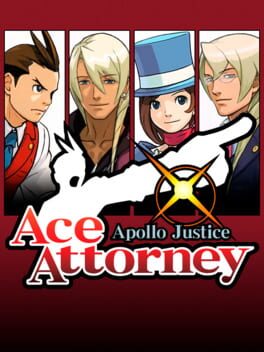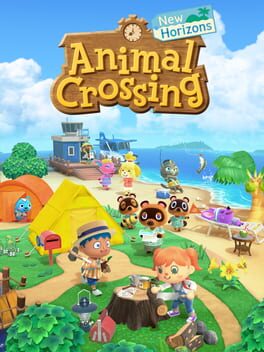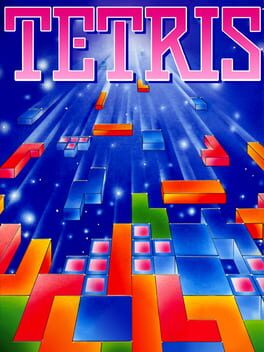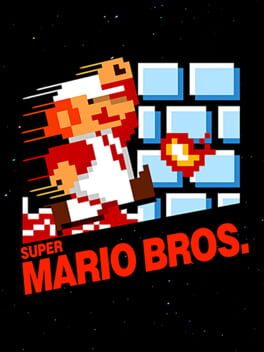Swiggle
seventeen years later apollo justice is a capital CG Cursed Game. harbinger of a new age which never really came- the apollo justice trilogy as a complete package is plainly awkward in how it languidly, disinterestedly follows its namesake. of course you can’t blame apollo justice for the decisions the IP made after it came out but apollo’s role in the franchise absolutely colors how this game is played now. now the game is a thracia 776-like experience, a darker, more punishing, more inconsequential story in the face of a broader conflict, except the two generations of warriors that flanked thracia 776 are both replaced by the one and only Phoenix Wright™.
it’s honestly doubtful that AJ receives the sheer abuse that investigations 1 or dual destinies does online, but it feels like the only game in the series that has yet to find a strong niche. the old guard has always held it apart from their beloved trinity, but yamazaki’s growing base of defenders doesn’t want to claim it either. its fans are often colored as the most vapid, rabid fans in the fanbase, relishing an imagined dynamic between klavier and apollo.
and certainly it’s not a difficult game to poke holes in. the game’s infamously fraught middle cases, regardless of how you view them, just don’t click together. yeah yeah, there are a lot of cinemasins “ding!” issues, but the cases also fall limp dramatically. in court there are scenes and even whole witness interrogations that don’t materially contribute to the core narrative of the mystery, as takumi envelops the player in minutiae to fill space. while both cases are about noble thieves and rotten cops, the game seems to shy away from its own subject matter at key moments. klavier, the series’ most passive rival, completely disengages from the injustice at hand when the corruption of law enforcement is exposed, even when he has a personal connection with the people at stake. apollo’s unique “gimmick” mechanic is also very weak, a task of observation that doesn’t engage with puzzle-solving in relation to the case at all.
but the game’s most glaring sign of incompleteness is the complete epic fail of an ending. the game goes out on a long limb to ground the player lucidly in this entry’s grand, time-spanning mystery. and the gamble pays off! there’s a lot of momentum that gets built up, all for the most bafflingly anticlimactic final day in trial of the entire series. i do not actually have much objection to how phoenix intrudes on the case, it’s not really revolutionary to have the mentor set the stage and deliver a couple pieces of evidence that help you clench the case. but the game completely fizzles after this. it’s so bizarre. for a franchise with so many infamously persistent final bosses, it’s insane how trivial the proceedings of the final court segment of this game are. right after managing a perfect passing-of-the-torch moment in AA3, they completely bungle it here. somehow.
but it’s inaccurate to label apollo justice a failed experiment, the tone and ideas the game is going for are still deployed and in place, if not exactly intact. right out of the gate apollo justice asks the player to consider possibilities that would be considered downright heretical in the rest of the main series. in the original trilogy, the shounen-like, operatic approach to good and evil is striking, but it often drains the game of moral dimension. sure, the games often flirt with the idea that maybe the protagonist would have to make a moral sacrifice, or that an antagonist was a profound victim before lashing out, but you’re always able to manage a perfect victory, in the end. every antagonist unilaterally goes too far in their plotting, even if they were hurt by the world or the people around them.
apollo justice dares to challenge this. the perfect victories that define the original trilogy are nowhere to be found. your catharsis is impeded as each subsequent not guilty verdict represents a new threshold to which you’re forced to subvert the justice system in order to free your unjustly accused clients. for the first time, it seems that the rot in the justice system might not just be a few corrupt Bad Men led by Wrong Ideologies, but instead a set of systemic failings, that the mechanics of justice itself might be at fault. for all of the games that have been centered on the expansion of the wright anything agency as a found family, apollo justice is the only game to lucidly cope with legacy, and how values, practices, and patterns of behavior are passed down (or often, more interestingly, withheld from being passed down).
the game’s final decision feels almost insulting given the current state of the game’s ending but i applaud that the final action the player takes is rendering an explicit moral judgment on a character. it’s an empty choice, but it demonstrates the strength of even the most trivial and obvious decision a person can make. more importantly, it invites every player, even the lowly klavier-apollo shipper, to consider the ethics of what actually happened here, that they are a creator of justice and not just a subject to it.
this attitude pulsates through the entire game. miraculously, ace attorney’s signature attention to detail when it comes to staging and presentation adapts perfectly to a more grounded, desperate story. the soundtrack is much more subdued overall but constantly poised to summon that classic pursuit cornered momentum. the animation maintains its expressive power while respecting and communicating the humanity of its subjects. all in all, apollo justice acquires a unique electricity no other game in the series has. this electricity carries you through even as you’re arguing about the location of a trash can a witness threw a pair of panties into or whatever
i’d consider myself something of an ace attorney superfan. this series’ creative calculus has a way of wringing out pathos that draws my focus to the screen unlike any other franchise. but i can’t deny that after having loved the series for so many years, it can feel weary in how it tells its stories with the same cadence, with the same structure underlying every case. even on the fiftieth replay, apollo justice still feels untamed. never definitive but always suggestive, my heart pours out for ace attorney four.
it’s honestly doubtful that AJ receives the sheer abuse that investigations 1 or dual destinies does online, but it feels like the only game in the series that has yet to find a strong niche. the old guard has always held it apart from their beloved trinity, but yamazaki’s growing base of defenders doesn’t want to claim it either. its fans are often colored as the most vapid, rabid fans in the fanbase, relishing an imagined dynamic between klavier and apollo.
and certainly it’s not a difficult game to poke holes in. the game’s infamously fraught middle cases, regardless of how you view them, just don’t click together. yeah yeah, there are a lot of cinemasins “ding!” issues, but the cases also fall limp dramatically. in court there are scenes and even whole witness interrogations that don’t materially contribute to the core narrative of the mystery, as takumi envelops the player in minutiae to fill space. while both cases are about noble thieves and rotten cops, the game seems to shy away from its own subject matter at key moments. klavier, the series’ most passive rival, completely disengages from the injustice at hand when the corruption of law enforcement is exposed, even when he has a personal connection with the people at stake. apollo’s unique “gimmick” mechanic is also very weak, a task of observation that doesn’t engage with puzzle-solving in relation to the case at all.
but the game’s most glaring sign of incompleteness is the complete epic fail of an ending. the game goes out on a long limb to ground the player lucidly in this entry’s grand, time-spanning mystery. and the gamble pays off! there’s a lot of momentum that gets built up, all for the most bafflingly anticlimactic final day in trial of the entire series. i do not actually have much objection to how phoenix intrudes on the case, it’s not really revolutionary to have the mentor set the stage and deliver a couple pieces of evidence that help you clench the case. but the game completely fizzles after this. it’s so bizarre. for a franchise with so many infamously persistent final bosses, it’s insane how trivial the proceedings of the final court segment of this game are. right after managing a perfect passing-of-the-torch moment in AA3, they completely bungle it here. somehow.
but it’s inaccurate to label apollo justice a failed experiment, the tone and ideas the game is going for are still deployed and in place, if not exactly intact. right out of the gate apollo justice asks the player to consider possibilities that would be considered downright heretical in the rest of the main series. in the original trilogy, the shounen-like, operatic approach to good and evil is striking, but it often drains the game of moral dimension. sure, the games often flirt with the idea that maybe the protagonist would have to make a moral sacrifice, or that an antagonist was a profound victim before lashing out, but you’re always able to manage a perfect victory, in the end. every antagonist unilaterally goes too far in their plotting, even if they were hurt by the world or the people around them.
apollo justice dares to challenge this. the perfect victories that define the original trilogy are nowhere to be found. your catharsis is impeded as each subsequent not guilty verdict represents a new threshold to which you’re forced to subvert the justice system in order to free your unjustly accused clients. for the first time, it seems that the rot in the justice system might not just be a few corrupt Bad Men led by Wrong Ideologies, but instead a set of systemic failings, that the mechanics of justice itself might be at fault. for all of the games that have been centered on the expansion of the wright anything agency as a found family, apollo justice is the only game to lucidly cope with legacy, and how values, practices, and patterns of behavior are passed down (or often, more interestingly, withheld from being passed down).
the game’s final decision feels almost insulting given the current state of the game’s ending but i applaud that the final action the player takes is rendering an explicit moral judgment on a character. it’s an empty choice, but it demonstrates the strength of even the most trivial and obvious decision a person can make. more importantly, it invites every player, even the lowly klavier-apollo shipper, to consider the ethics of what actually happened here, that they are a creator of justice and not just a subject to it.
this attitude pulsates through the entire game. miraculously, ace attorney’s signature attention to detail when it comes to staging and presentation adapts perfectly to a more grounded, desperate story. the soundtrack is much more subdued overall but constantly poised to summon that classic pursuit cornered momentum. the animation maintains its expressive power while respecting and communicating the humanity of its subjects. all in all, apollo justice acquires a unique electricity no other game in the series has. this electricity carries you through even as you’re arguing about the location of a trash can a witness threw a pair of panties into or whatever
i’d consider myself something of an ace attorney superfan. this series’ creative calculus has a way of wringing out pathos that draws my focus to the screen unlike any other franchise. but i can’t deny that after having loved the series for so many years, it can feel weary in how it tells its stories with the same cadence, with the same structure underlying every case. even on the fiftieth replay, apollo justice still feels untamed. never definitive but always suggestive, my heart pours out for ace attorney four.
animal crossing finally concludes its slow and steady descent into a list of chores served alongside a heaping helping of bread and circuses. the experience of playing new horizons is closer to playing a dead mmo than it is to any sort of zen-like getaway game.
animal crossing has always had a nasty hook monster but it is no longer lurking around the small town, showing its face to you rarely and at a distance. now, it has picked up a beach-front property and firmly moved in. it is now the most important resident, and by god, if you do not play by its rules, you are not going to have a good time.
animal crossing has always had a nasty hook monster but it is no longer lurking around the small town, showing its face to you rarely and at a distance. now, it has picked up a beach-front property and firmly moved in. it is now the most important resident, and by god, if you do not play by its rules, you are not going to have a good time.
1989
i hate the idea of the "perfect game."
it's true tetris is, mechanically, without meaningful blemish. especially accounting for rerelease after rerelease, it has been polished to a gleaming shine. but it's an unadventurous mindset that decides something's worth on how few flaws you can find with it.
there's a rock-solid elegance to the purity of tetris' easy to learn, hard to master gameflow. but i can't deny that many iterations on it have been even more hypnotizing, if a little more lopsided.
tetris is a beautiful, pristine pearl of gaming history. but i can't help but find more value in the chipped diamond, myself.
it's true tetris is, mechanically, without meaningful blemish. especially accounting for rerelease after rerelease, it has been polished to a gleaming shine. but it's an unadventurous mindset that decides something's worth on how few flaws you can find with it.
there's a rock-solid elegance to the purity of tetris' easy to learn, hard to master gameflow. but i can't deny that many iterations on it have been even more hypnotizing, if a little more lopsided.
tetris is a beautiful, pristine pearl of gaming history. but i can't help but find more value in the chipped diamond, myself.
1986
epic games preservation fail: secrets permanently out of stock. there was once a wonder of the ancient gaming world here. but now it is covered in stainless steel and rebar. very few people explore in hyrule anymore. now, its visitors are mostly tourists. if a game like this was released today, people would rightfully call its core design hopelessly naive.
zelda 1 was always meant to be solved with a little bit of help- whether it be homemade maps, schoolyard secret swapping, or good old Nintendo Power™. but that does not mean that the years have been kind to the game. the world map itself remains unchanged 35+ years later. it's us who have changed around it. a whole cottage industry has sprung up on teaching people how to finish video games. sure, guide magazines existed in the 80s. but the rugged, chunky open world is cut through like mist with the guided tours that clutter the first several pages of google search results. the exact amount of help you'll need in this game isn't even clear until you've already spoiled yourself, and the vast, vast majority of people Will need help to get to the end of this game.
miyamoto famously created this game to evoke the feeling from his childhood of trying to piece together surroundings he didn't understand, organically discovering surprises along the way. as a society, no matter how we try and ignore it, we always have a perfect map in our backpack.
zelda 1 was always meant to be solved with a little bit of help- whether it be homemade maps, schoolyard secret swapping, or good old Nintendo Power™. but that does not mean that the years have been kind to the game. the world map itself remains unchanged 35+ years later. it's us who have changed around it. a whole cottage industry has sprung up on teaching people how to finish video games. sure, guide magazines existed in the 80s. but the rugged, chunky open world is cut through like mist with the guided tours that clutter the first several pages of google search results. the exact amount of help you'll need in this game isn't even clear until you've already spoiled yourself, and the vast, vast majority of people Will need help to get to the end of this game.
miyamoto famously created this game to evoke the feeling from his childhood of trying to piece together surroundings he didn't understand, organically discovering surprises along the way. as a society, no matter how we try and ignore it, we always have a perfect map in our backpack.
1985
if you think this game “plays weird” and don’t get the hype i beg you to play 5 other NES platformers then come back, relax, and feel the lushness of the first true strand type game.
super mario bros is not the primordially simple jumping game it is often introduced as. platformers had ages to mature in the hypercompetitive arena of the arcade throughout the 70’s and early 80’s. aside from its understatedly elegant aesthetic, the ambition in SMB is in the elevation of movement from merely a mode of traversal to a gymnastic, expressive activity.
megaman, simon belmont, and ryu hayabusa are all transparently simple state machines— the amount of possible actions they can take is finite and countable. super mario bros did not invent momentum in platforming, nor was it the first to leverage the additional complications that a more involved system of movement entails. the friction between the player avatar and the ground. the acceleration from a dead stop to a full run. the short moment after taking your finger off the jump button before the character truly starts to fall. all the little intricacies and details compound to make mario a much more expressive vessel for a player to inhabit. what sets SMB apart is that the movement is honed to the extent it becomes even more natural than the comparatively simple systems of the above games.
mario’s body doesn’t literally move like the human form does, but negotiating the balance of a jump in mid-air, trying to establish steady footing on unhelpful terrain, and wheelin and dealing with newton’s first law in general are central to the human experience. in super mario bros, nintendo squarely refocuses the platformer from a cabaret of obstacles to a celebration of acrobatic motivity
and so, it became the bedrock upon which their castle was built
super mario bros is not the primordially simple jumping game it is often introduced as. platformers had ages to mature in the hypercompetitive arena of the arcade throughout the 70’s and early 80’s. aside from its understatedly elegant aesthetic, the ambition in SMB is in the elevation of movement from merely a mode of traversal to a gymnastic, expressive activity.
megaman, simon belmont, and ryu hayabusa are all transparently simple state machines— the amount of possible actions they can take is finite and countable. super mario bros did not invent momentum in platforming, nor was it the first to leverage the additional complications that a more involved system of movement entails. the friction between the player avatar and the ground. the acceleration from a dead stop to a full run. the short moment after taking your finger off the jump button before the character truly starts to fall. all the little intricacies and details compound to make mario a much more expressive vessel for a player to inhabit. what sets SMB apart is that the movement is honed to the extent it becomes even more natural than the comparatively simple systems of the above games.
mario’s body doesn’t literally move like the human form does, but negotiating the balance of a jump in mid-air, trying to establish steady footing on unhelpful terrain, and wheelin and dealing with newton’s first law in general are central to the human experience. in super mario bros, nintendo squarely refocuses the platformer from a cabaret of obstacles to a celebration of acrobatic motivity
and so, it became the bedrock upon which their castle was built




